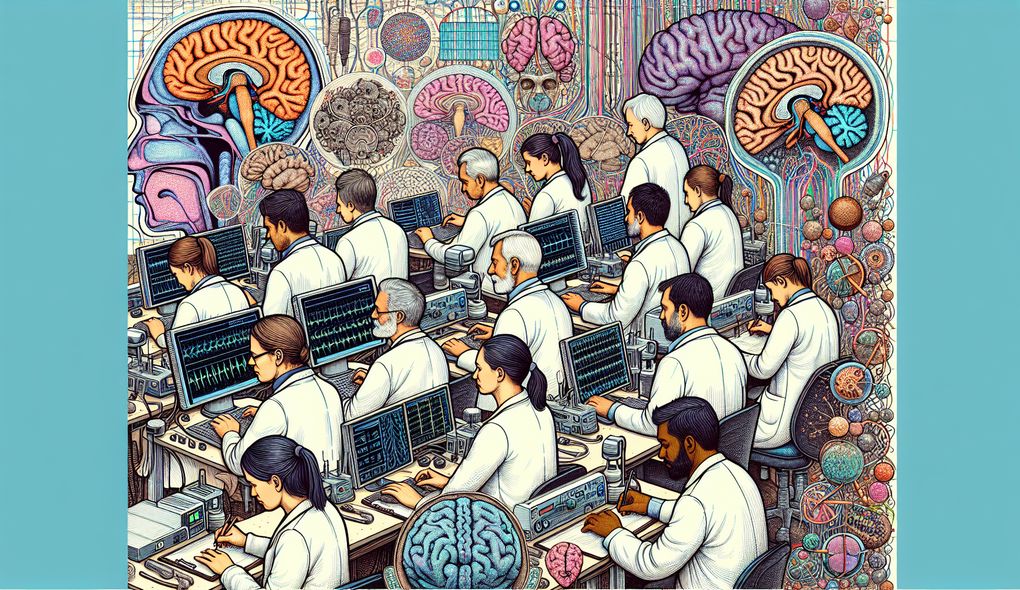How do you tailor your approach to different patients with different neurological conditions?
SENIOR LEVEL

Sample answer to the question:
When tailoring my approach to different patients with different neurological conditions, I take into consideration their specific symptoms, medical history, and personal preferences. I start by gathering as much information as possible through interviews, medical records, and diagnostic tests. This helps me understand their unique needs and challenges. Based on this information, I develop individualized treatment plans that address their specific condition and goals. I also communicate regularly with the patient and their healthcare team to ensure that the treatment plan is effective and adjusted as needed. Additionally, I stay updated on the latest advancements in neurology and neurophysiology to provide the most up-to-date care.
Here is a more solid answer:
In my approach to different patients with different neurological conditions, I emphasize the importance of active listening and building rapport. This helps me gain a comprehensive understanding of their symptoms, concerns, and goals. I then utilize my extensive knowledge of neurological disorders to develop personalized treatment plans. For instance, if a patient has epilepsy, I may recommend EEG monitoring, anti-epileptic medications, and lifestyle modifications. On the other hand, if a patient is experiencing muscle weakness, I may perform an EMG study and prescribe targeted physical therapy. I also prioritize patient education, explaining the diagnosis, treatment options, and expected outcomes in a clear and empathetic manner. Moreover, I am well-versed in utilizing advanced neurodiagnostic equipment and software to accurately interpret test results and track the progress of treatment. By staying updated with the latest research and attending conferences, I ensure my practice aligns with the evolving field of neurophysiology.
Why is this a more solid answer?
The solid answer expands on the basic answer by providing specific examples of tailoring the approach to different patients with different neurological conditions. It addresses the evaluation areas and aligns with the job description. However, it could further enhance by including more details about collaboration with healthcare professionals and research contributions.
An example of a exceptional answer:
When it comes to tailoring my approach to different patients with different neurological conditions, I aim for a holistic and patient-centered approach. I begin by thoroughly reviewing the patient's medical history, conducting a comprehensive physical examination, and analyzing any available test results. This allows me to gather precise information about the patient's condition and make informed decisions. I also prioritize effective communication with the patient, using clear and empathetic language to ensure they understand their diagnosis, treatment options, and expected outcomes. Additionally, I collaborate closely with a multidisciplinary team, including neurologists, nurses, therapists, and other healthcare professionals, to provide comprehensive care to the patients. This collaborative approach ensures that all aspects of the patient's condition are addressed and that the treatment plan is comprehensive and well-rounded. Furthermore, I actively participate in research and utilize evidence-based practices to continually enhance my knowledge and deliver the highest quality of care. This includes staying up-to-date with advancements in neurophysiology, attending conferences, and contributing to scientific publications. By combining my expertise, collaboration with a healthcare team, and commitment to ongoing education, I strive to provide the best possible care for patients with different neurological conditions.
Why is this an exceptional answer?
The exceptional answer goes beyond the solid answer by emphasizing a holistic and patient-centered approach. It highlights collaboration with a multidisciplinary team and contributions to research. It provides a thorough understanding of tailoring the approach and aligns with the job description.
How to prepare for this question:
- Familiarize yourself with a variety of neurological conditions and the latest advancements in neurophysiology
- Develop strong analytical and problem-solving skills to diagnose and treat complex cases
- Hone your communication and interpersonal skills to effectively communicate with patients and their healthcare team
- Stay updated with neurodiagnostic equipment and software to accurately interpret test results
- Seek opportunities to teach and mentor medical personnel to enhance your teaching abilities
- Demonstrate attention to detail and precision in your work to ensure accurate diagnoses and treatment
- Commit to continuous learning and professional development by attending conferences, workshops, and reading scientific publications
What are interviewers evaluating with this question?
- Clinical skills
- Understanding of neurological disorders
- Analytical and problem-solving abilities
- Communication and interpersonal skills
- Proficiency with neurodiagnostic equipment and software
- Teaching and mentoring abilities
- Attention to detail and precision
- Dedication to ongoing education and professional development

